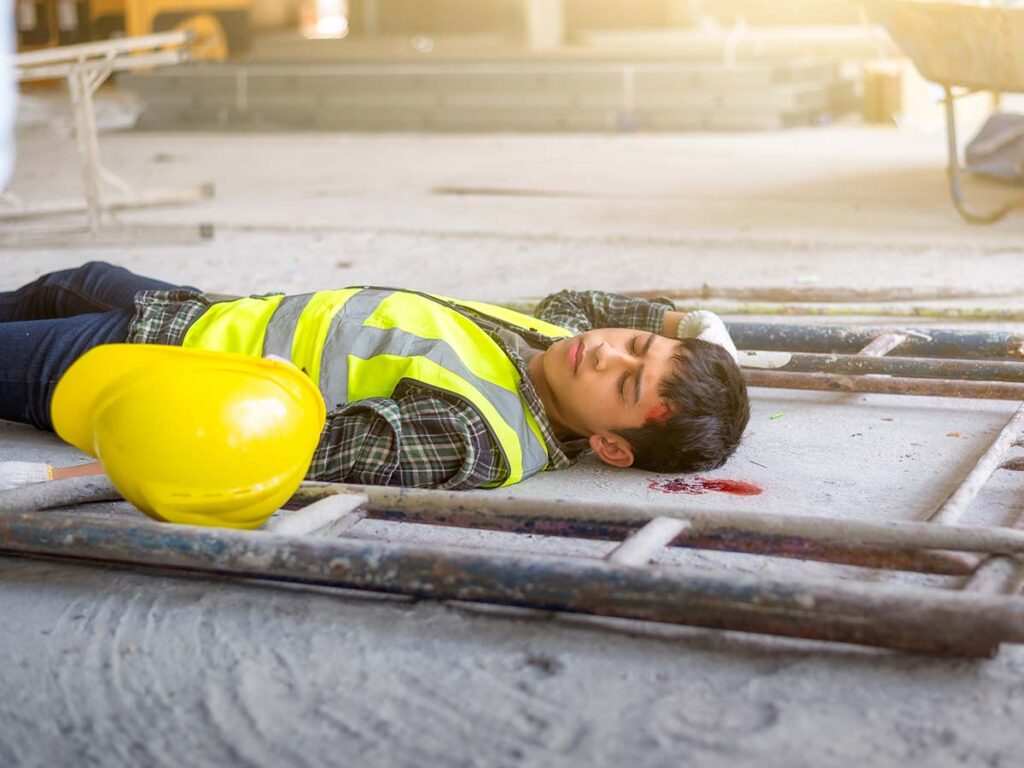Construction sites and other industrial job environments are filled with risks, which is why safety equipment is not just recommended—it’s required. But what happens when that safety equipment fails you? If you’ve been injured by defective safety equipment on a job site, your next steps are crucial not only for your recovery, but also for protecting your legal rights and securing the compensation you deserve.
At Rozas Injury Law, LLC, we understand how devastating workplace injuries can be, especially when they’re caused by faulty equipment. Here’s a complete guide on what to do next, how the workers compensation claim process works, and what legal options may be available to help you recover.

Seek Immediate Medical Attention
The first and most important step is to seek medical attention. Delaying care can worsen your condition and hurt your claim later. Whether it’s a head injury from a defective hard hat or a burn from faulty safety gear, getting proper treatment and documenting your injuries is essential.
Ask for copies of all medical records and bills related to your medical treatment. These records not only support your workers compensation claim but can also serve as critical evidence if you pursue a third party lawsuit.
Report the Injury to Your Employer
As soon as you can, report the injury to your supervisor or site manager. Under Louisiana law, you typically have 30 days to notify your employer of a workplace injury, but doing it immediately is always better. Document when, how, and where the injury occurred—especially if it involved defective safety equipment or construction equipment.
If your employer fails to act, an experienced workers compensation attorney can help make sure the report is properly filed and your rights are protected.
File a Workers Compensation Claim
Injured workers are usually entitled to workers compensation benefits through their employer’s insurance. This system is designed to cover medical expenses and lost wages without needing to prove fault. However, navigating the workers compensation claim process can be overwhelming without help.
Make sure your claim includes:
- Detailed records of medical treatment
- Information about the defective products or safety equipment involved
- Witness statements and accident scene photos, if available
The success of your compensation claim often depends on gathering evidence early and completely. If equipment fails on a job site, proving that it didn’t function properly or was improperly maintained could be vital.
Identify All Responsible Parties
While workers compensation generally prevents you from suing your employer, you may have a valid third party claim against other responsible parties—such as the manufacturer of defective construction equipment or the supplier of faulty safety gear.
These third party lawsuits are separate from your workers compensation claim and can provide compensation for pain and suffering, long-term medical expenses, and more. Examples of possible responsible parties include:
- Manufacturers of defective products or equipment
- Distributors of unsafe equipment
- Subcontractors or third party vendors on the job site
Product liability lawsuits often apply strict liability to manufacturers, meaning they can be held responsible even without proof of negligence if their equipment caused serious injuries.
Preserve the Defective Equipment
If you’re injured by defective safety equipment, try to preserve the item if possible. This allows investigators and attorneys to examine the product and determine whether a manufacturing defect or improper maintenance caused the equipment failure.
Improper storage, poor maintenance, or missing safety features could all point to negligence or a flaw in design. Your legal team may hire experts to analyze the equipment’s condition and identify whether it was defective.
Document Everything
Detailed documentation makes all the difference in both workers compensation claims and third party lawsuits. You should keep:
- Medical records and bills
- Accident scene photos
- Witness statements
- Reports about the equipment involved
- Any correspondence with your employer or the insurance company
Also document your lost wages and any other expenses related to the injury. The more organized your records are, the easier it is to build a strong injury claim.
Consider a Third Party Lawsuit
If defective products caused your injury, you may have grounds for a third party claim or product liability lawsuit. This is especially important if the injuries are severe or workers compensation alone won’t cover your total losses.
A third party lawsuit could help recover damages for:
- Serious injuries and long-term disability
- Pain and suffering
- Medical expenses beyond what workers comp covers
- Future lost earnings
Such lawsuits often involve complex legal implications, so seeking legal representation is essential. The team at Rozas Injury Law, LLC is experienced in holding negligent parties accountable and pursuing fair compensation for injured workers.

Don’t Rely Solely on Insurance Companies
Insurance companies are not always on your side. Whether it’s a workers compensation insurer or a liability carrier for a third party, their goal is often to limit payouts. They may dispute the severity of your injuries or argue the equipment failure wasn’t the cause.
Having an experienced workers compensation attorney or personal injury lawyer can help level the playing field and ensure you receive proper treatment and rightful compensation.
Learn more about what to do if you’re injured by defective safety equipment on a job site. Call Rozas Injury Law, LLC at (225) 343-0010 to schedule your free, no-obligation consultation. You can also reach us anytime through our contact page. Let us help you take the first step toward justice and recovery.
FAQs About Defective Equipment Injuries on Job Sites
What if the injury was caused by faulty equipment, not my employer?
You may be able to file both a workers compensation claim and a third party lawsuit against the manufacturer or distributor of the faulty equipment.
How can I prove the equipment was defective?
Preserving the equipment, taking photos of the accident scene, and gathering witness statements are crucial. Legal teams can also hire experts to inspect the item.
Can I sue for pain and suffering?
Workers compensation doesn’t cover pain and suffering, but a third party lawsuit against a manufacturer or negligent party might.
What should I do after seeking medical attention?
Report the injury to your employer, gather evidence, and contact a personal injury lawyer to explore your options. Don’t rely solely on the insurance company to protect your interests.
Do I need an attorney to file a claim?
While not legally required, having an experienced workers compensation attorney can significantly improve your chances of a successful outcome—especially in complex cases involving defective construction equipment or serious injuries.




